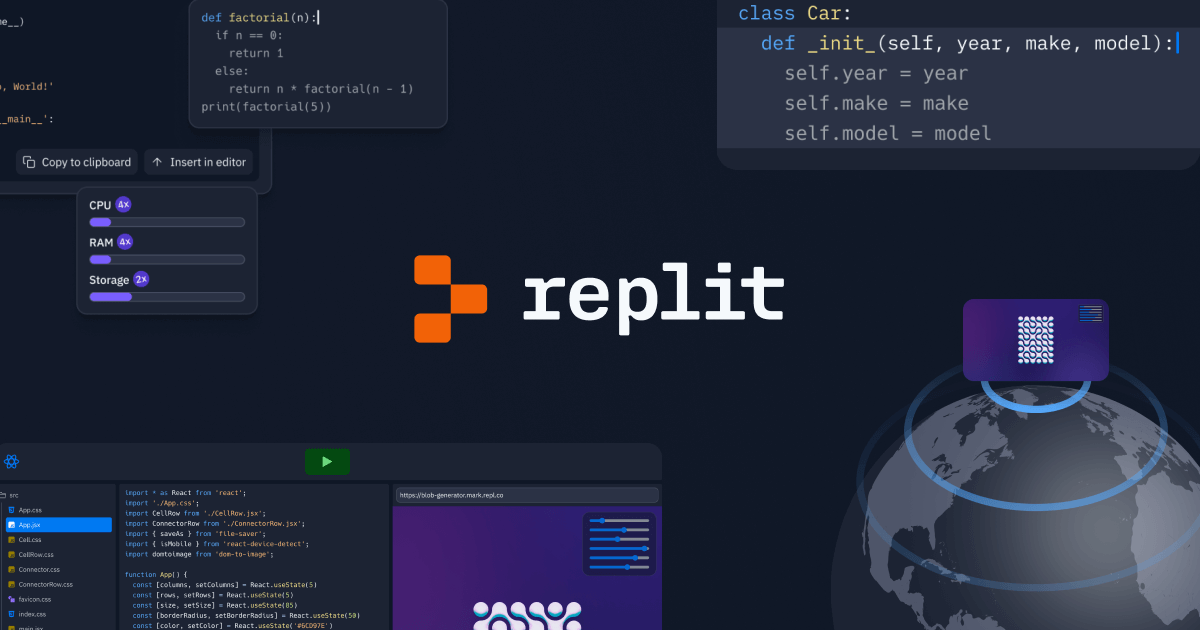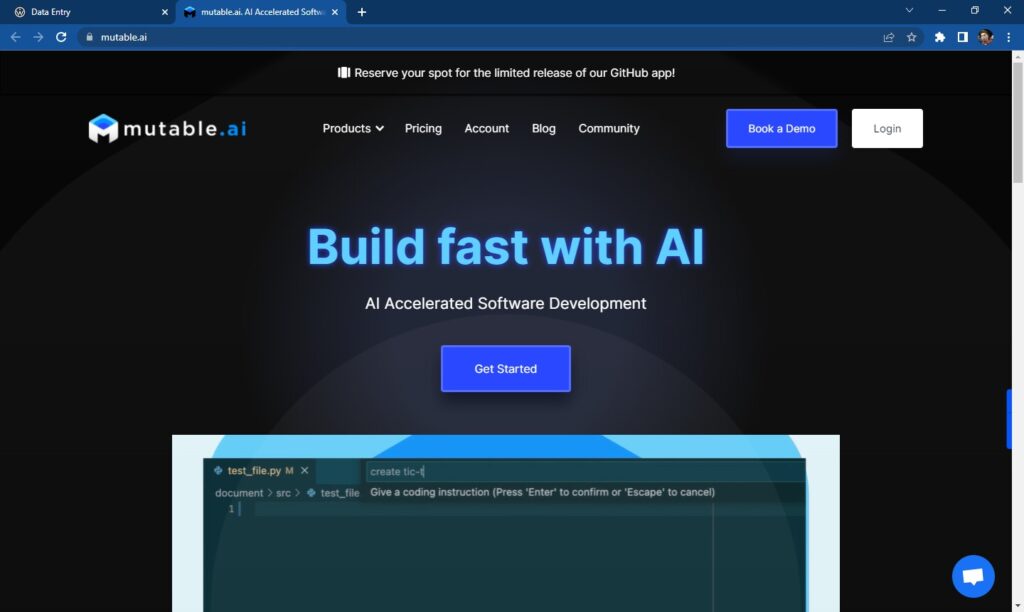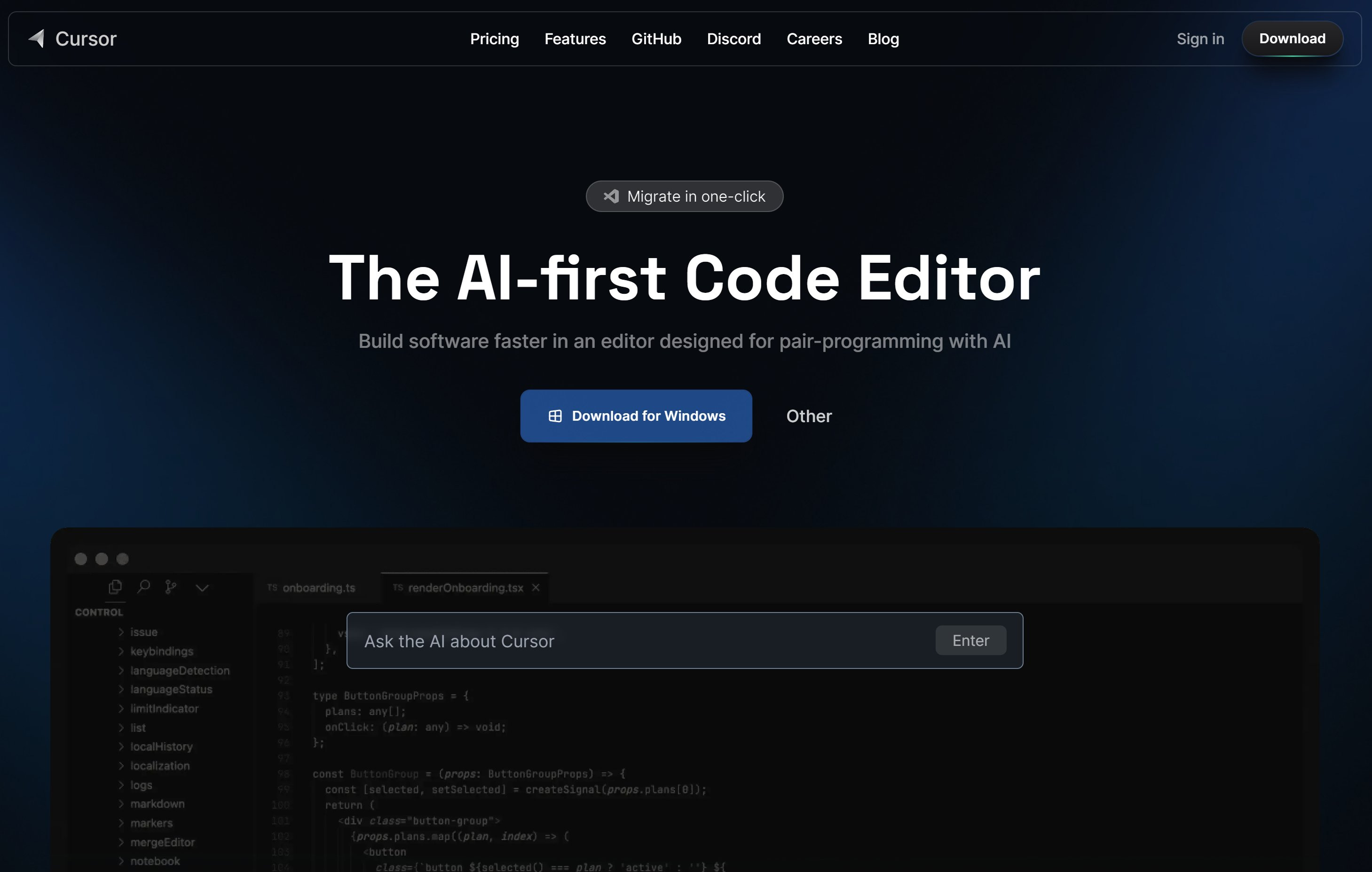AI software development agents aren’t just a trend—they’re becoming essential tools for modern dev teams, solo builders, and even non-coders looking to launch apps faster.
If you’ve been keeping up with AI platforms, you’ve probably noticed a growing wave of competitors. Some help you generate code. Others help you ship entire applications with minimal effort. But not all AI development tools are created equal.
In this post, I’ll walk you through the top AI software development platforms in 2025, highlight what makes each one special, and help you figure out which one’s the right fit for your next project.
1. Flatlogic AI – Best for Full Web App Generation

If you’re looking to generate a full-stack application—frontend, backend, database, and all—with just a few inputs, Flatlogic AI is one of the most complete solutions available.
✅ Key Features:
- Choose your stack (React, Angular, Vue + Node.js, Python, .NET, etc.)
- Define your data model visually
- Generates frontend, backend, and database
- Built-in authentication, roles, and routing
- Ready for deployment out of the box
🧠 Why It Stands Out:
Flatlogic is more than just AI code generator—it’s like hiring a dev team to set up your project overnight. It gives you a maintainable codebase that’s easy to customize and scale.
👌 Best For:
- Startups launching MVPs fast
- Internal business apps
- Admin dashboards
- Developers who want a strong base to build on
2. GitHub Copilot – Best for Code Suggestions in the Editor

Copilot acts like a supercharged autocomplete tool. It predicts what you’re about to type, suggests full functions, and helps you code faster.
✅ Key Features:
- Integrated with VS Code, JetBrains, and more
- Learns from billions of lines of public code
- Suggests code as you type
🧠 Why It Stands Out:
It’s seamless. If you’re already in your IDE, Copilot feels like magic—especially for repetitive coding tasks or when learning a new language.
👌 Best For:
- Day-to-day coding
- Junior developers learning syntax
- Developers who want to speed up repetitive tasks
3. Amazon CodeWhisperer – Best for Cloud-Integrated AI Development

Designed to help developers working with AWS infrastructure, CodeWhisperer provides context-aware suggestions tailored to cloud development.
✅ Key Features:
- Deep integration with AWS services
- Supports Python, Java, JavaScript, and more
- Suggests code based on natural language prompts
🧠 Why It Stands Out:
It’s trained with cloud-native development in mind, making it a strong choice for backend services, APIs, and Lambda functions.
👌 Best For:
- AWS developers
- Backend services
- Serverless applications
4. Replit Ghostwriter – Best for In-Browser Development with AI Support

Ghostwriter is built into Replit, a browser-based coding platform. It combines AI assistance with a cloud IDE, making it easy to build apps anywhere.
✅ Key Features:
- Works directly in your browser
- AI suggests code and explains bugs
- Supports multiplayer collaboration
🧠 Why It Stands Out:
It’s ideal for quick prototyping or learning to code on the go—no installs required.
👌 Best For:
- New developers
- Educational projects
- Building and sharing code from any device
5. Mutable AI – Best for Refactoring and Documentation

Mutable AI focuses less on writing new apps and more on making your existing code better—cleaner, faster, and well-documented.
✅ Key Features:
- AI-powered code cleanup and refactoring
- Documentation generation
- Works in IDEs like VS Code
🧠 Why It Stands Out:
When you’re working on a messy codebase and want to improve it without breaking things, Mutable AI is a lifesaver.
👌 Best For:
- Legacy projects
- Improving readability and maintainability
- Developers who want to clean up technical debt
6. Anysphere Cursor – Best for IDE-Native Chat and Code Understanding

Cursor is a VS Code-based AI-powered IDE that lets you interact with your code through chat. You can ask it questions, get help with refactoring, or navigate unfamiliar codebases faster.
✅ Key Features:
- “Ask your code” feature via natural language
- Seamless IDE integration
- Explains, refactors, and writes code
🧠 Why It Stands Out:
It’s like pair programming with a smart teammate who knows your codebase and never sleeps.
👌 Best For:
- Mid-level to senior devs exploring large codebases
- Pair programming and technical research
- Getting up to speed on new repos quickly
Quick Comparison Table
| Platform | Focus | Best Use Case | Full App Generation | IDE Integration |
|---|---|---|---|---|
| Flatlogic AI | App generator | MVPs, dashboards, internal tools | ✅ | ❌ (browser-based) |
| GitHub Copilot | Code suggestions | General coding speed and assistance | ❌ | ✅ |
| CodeWhisperer | Cloud development (AWS) | Serverless, backend, cloud apps | ❌ | ✅ |
| Ghostwriter | In-browser coding + AI | Lightweight prototyping and education | ❌ | ✅ (web IDE) |
| Mutable AI | Refactoring + docs | Improving legacy code | ❌ | ✅ |
| Cursor | Code understanding in IDE | Navigating and editing large projects | ❌ | ✅ |
Final Thoughts: Which AI Agent Should You Use?
Each of these platforms shines in its own way, depending on what you’re trying to build.
- Need to launch an actual working app with backend and database? → Flatlogic AI
- Want help while writing code in your editor? → Try Copilot or Cursor
- Building in the cloud or AWS environment? → CodeWhisperer is your go-to
- Cleaning up old code or writing docs? → Mutable AI has your back
- Want to code in the browser with AI built-in? → Check out Ghostwriter
The best part? You don’t have to choose just one.
Many teams use Flatlogic AI to kickstart their app, then Copilot to finish features, and Snyk or Mutable AI to clean and secure the code.
The age of AI-powered software development isn’t coming—it’s already here.
And it’s not about replacing devs—it’s about supercharging your workflow with the right agent for the job.